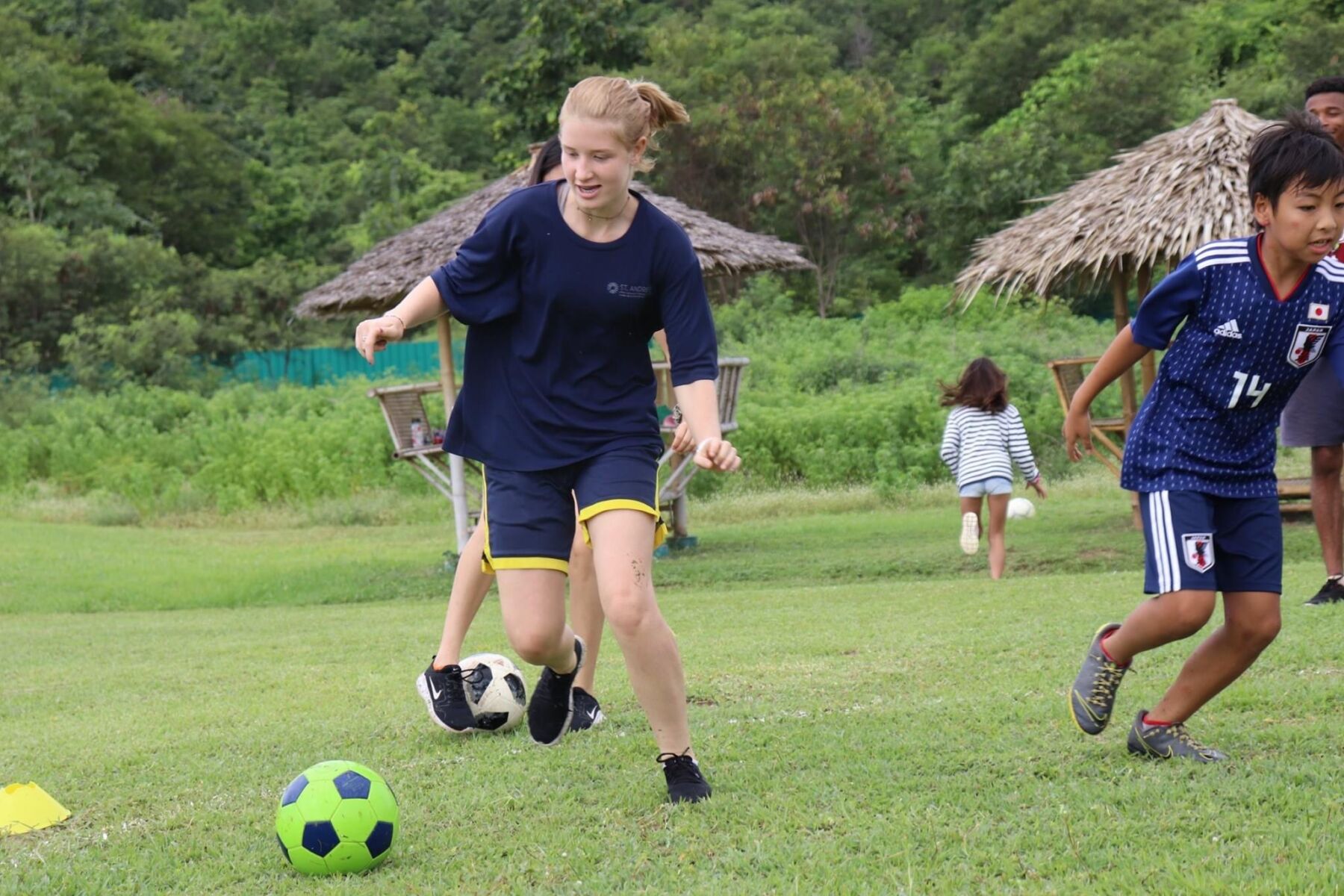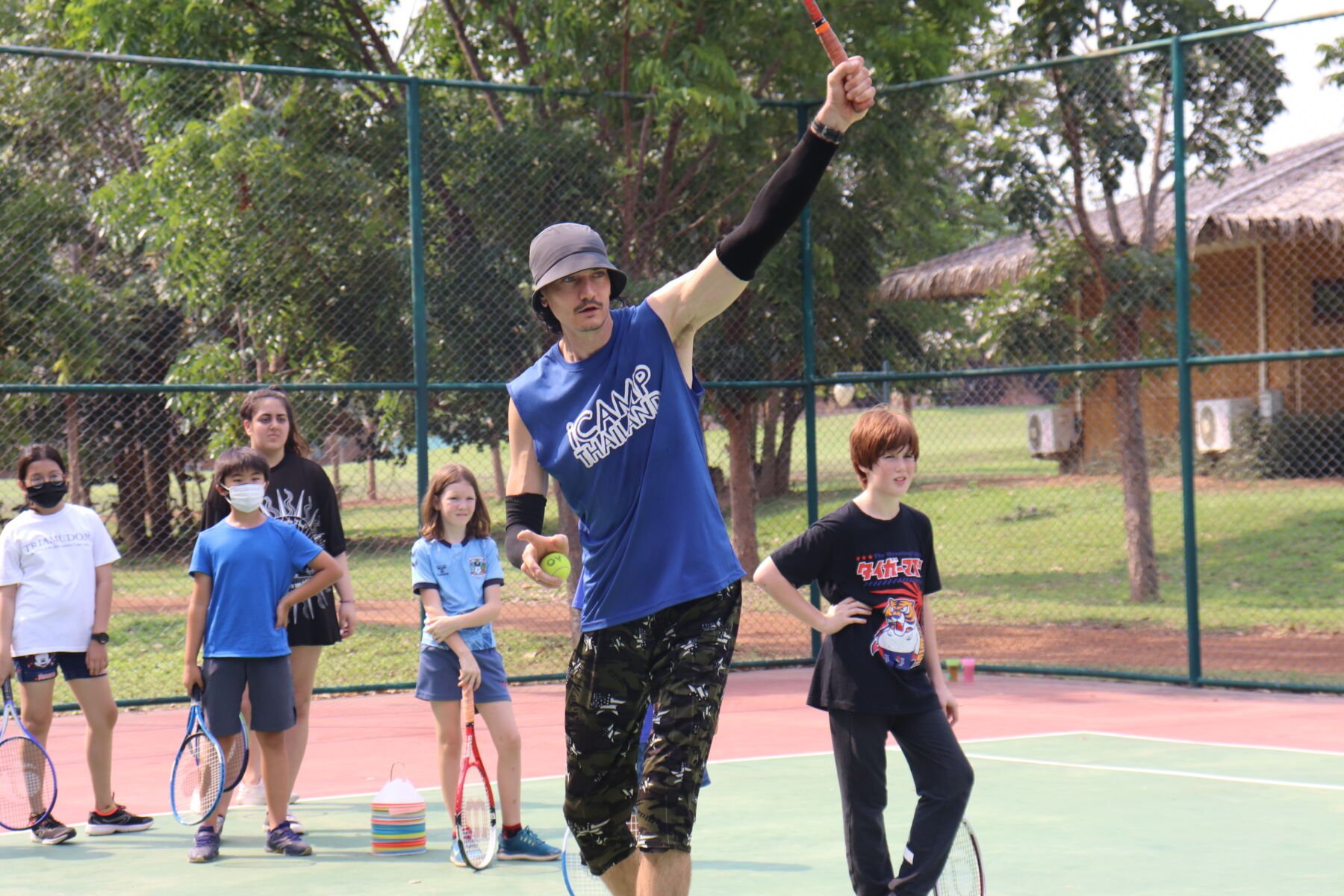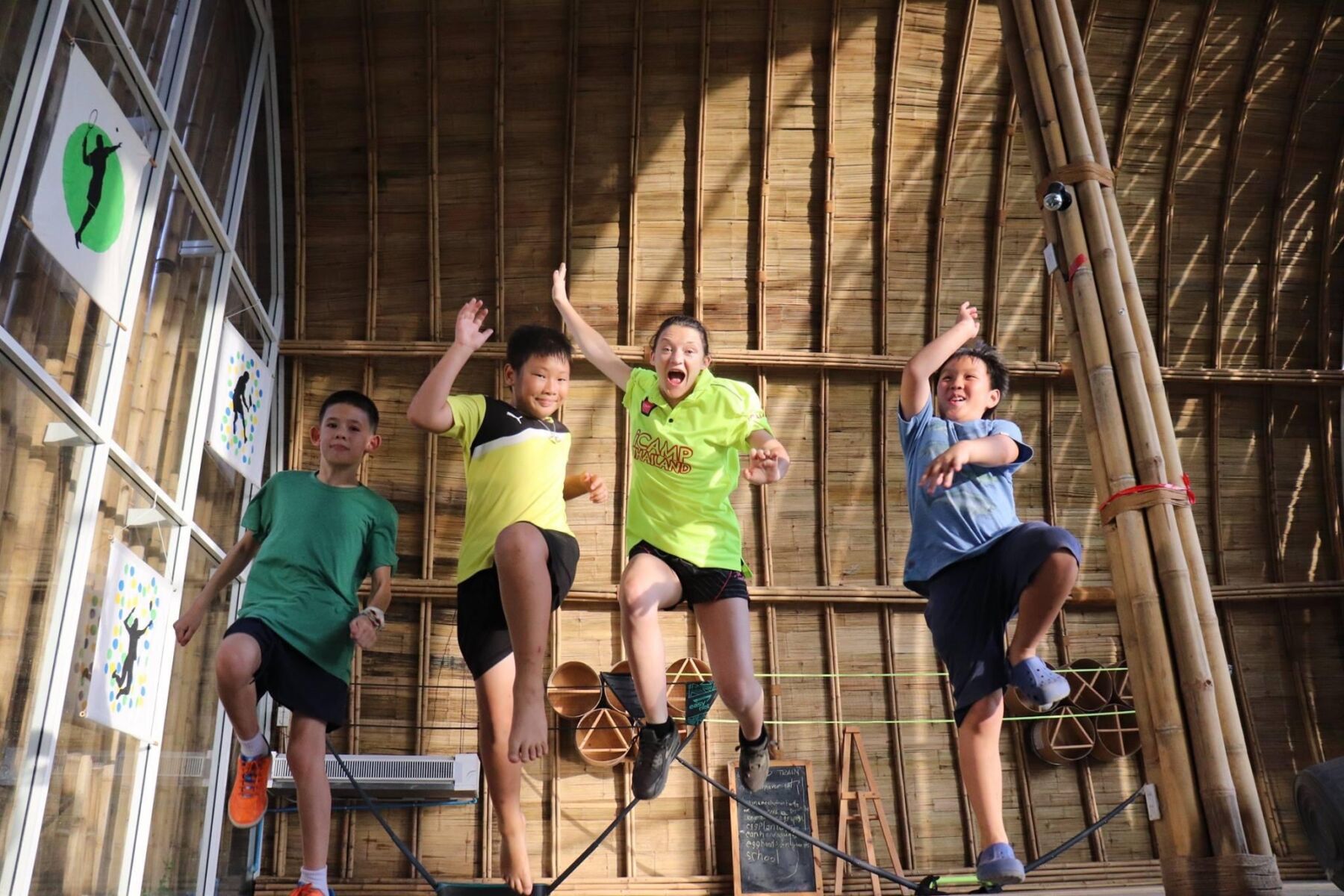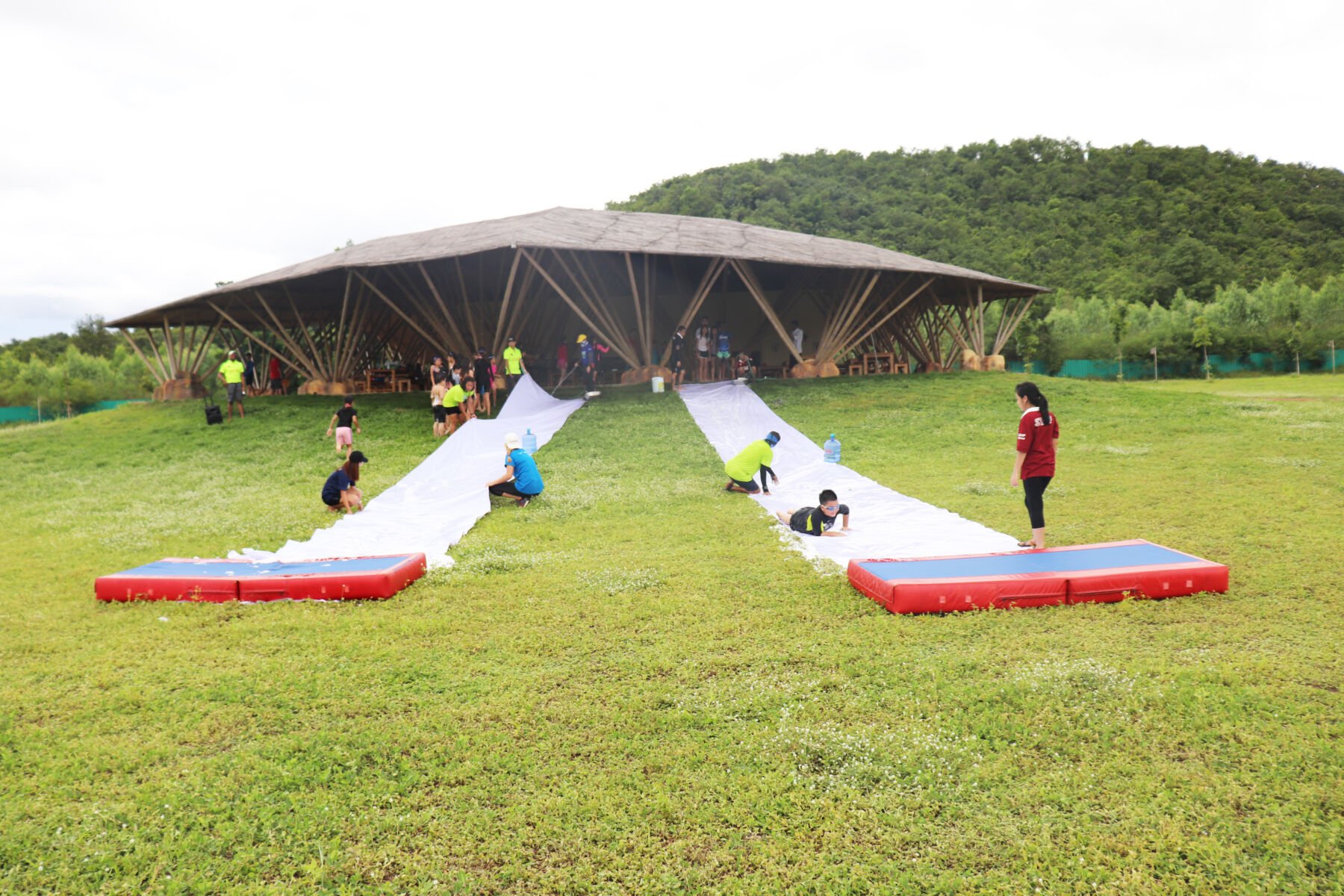A parent’s guide to choosing the right summer camp in Thailand

If you want to keep your little ones healthy, happy, and active this summer break, consider enrolling them in a summer camp in Thailand. A good summer camp provides a safe environment where kids can have a blast while building self-confidence, developing independence, exploring new interests, and making new friends. But with so many options available, from day camps to sleepaway camps, picking the right one can be challenging. That’s why we make this guide to help you find the right summer camp in Thailand that offers a balance of fun, learning, and safety.
How to choose the right summer camp for your kids
1. Explore the variety of activities and programme offerings available

Summer camps are an excellent way for kids to discover new interests and skills. Therefore, it’s a good idea to find a camp that presents a diverse range of activities. For example, iCamp Thailand, the first American-style summer camp in the country, offers a mix of outdoor adventure, sports, arts & crafts, performing arts, and team-building games for children aged 8 to 16 in their programme.
The array of activities available gives kids a well-rounded experience. They can step out of their comfort zone, find something they enjoy, explore their potential, and have fun while doing so.
Outdoor adventures like hiking and kayaking can spark curiosity and a love for nature, while sports activities promote physical fitness and teamwork. Moreover, artistic programmes, be it painting or music lessons, encourage creativity, self-expression, confidence, and public speaking skills. Team-building games complete the summer camp experience as they teach valuable life lessons like cooperation and responsibility.
2. Find out if the summer camp has qualified counsellors

Make sure the counsellors are not only qualified but also passionate about working with kids, as they will be responsible for your kids throughout the camp. Plus, you should find a camp that employs counsellors with real-world knowledge and expertise in the subjects they are teaching so your kids can receive a first-rate learning experience.
At iCamp Thailand, the counsellors consist of well-trained industry professionals who can provide high-quality instruction and supervision. They’re present during all activities and free time to create a safe and supportive environment for the kids. And with a low counsellor-to-camper ratio, each child is given all the attention and care they need.
3. Make sure the summer camp prioritises your child’s health and safety

One of the main concerns parents have when it comes to summer camp is their kids’ safety and well-being. It’s essential to choose a summer camp with trained and certified staff who can handle activities and emergencies, facilities on-site to promptly address health concerns, and clear protocols in place for different emergency situations.
iCamp Thailand prioritises meticulous care in medical situations, especially when administering medication. A Health Form must be completed for each kid attending camp, with specific guidelines noted for regular medication. Furthermore, the camp employs a full-time nursing staff throughout the summer. For any serious emergency beyond their capabilities, they collaborate with Synphaet and Dan Makham Tia Hospital nearby in Kanchanaburi for immediate assistance.
In terms of food, the skilled chefs at iCamp Thailand cater to various dietary needs by preparing nutritious and delicious kid-friendly meals. Each meal features a wide selection of breakfast items or salads, as well as vegetarian, gluten-free, dairy-free, and vegan choices. Additionally, fresh fruits are offered with every meal.
Of course, no parent wants anything bad to happen to their children, so it’s always nice to know they’ll be looked after properly.
4. Research the summer camp’s accommodations and facilities

Another vital aspect to consider when choosing a summer camp in Thailand is the accommodations and facilities. Are the kids sleeping in cabins, tents, or dorms? How many kids will stay together in one room? Are the rooms supervised by staff members? Are there enough restrooms for the kids? In addition, ask about the facilities and make sure they are well-maintained and equipped with necessary safety measures. Remember, high-quality accommodations and facilities contribute significantly to a positive and enjoyable camp experience.
Kids at iCamp Thailand will have the opportunity to stay in one of their 16 cosy bamboo cabins. Each air-conditioned cabin features 6 bunks, accommodating a total of 12 campers along with 2 dedicated staff members to oversee their well-being. Furthermore, the cabins are equipped with essential amenities such as showers, toilets, and washing facilities to meet the kids’ daily needs. The layout of the cabins is strategically arranged in a circle, with the boys’ and girls’ cabins conveniently separated by the central canteen area.
Aside from their accommodation, your kids will have access to a wide range of facilities designed for a fun and enriching experience. These include an arts and crafts building, function rooms, a large theatre seating up to 300 people, a gymnasium, a dance studio, a campfire area for bonding sessions under the stars, an exciting water park for splashing adventures, and various sports grounds offering activities like tennis, football, volleyball, archery, and more.
You can request to tour the camp before you send your kids to iCamp Thailand. This allows you to evaluate the accommodation and facilities yourself.
5. Consider the location

Along with accommodations and facilities, the camp location is another crucial consideration. The setting of the camp can significantly impact your kids’ overall experience.
Summer camps in Thailand are usually located in a school or in nature. A school setting might offer familiar amenities and structure. In contrast, a natural setting can provide unique outdoor experiences and a closer connection to nature. Both have their own advantages, so determine what you believe would best suit your children’s needs.
If your kids seek a more adventurous setting, a nature location like iCamp Thailand might be better. Situated in Kanchanaburi, just 160 km from Bangkok, this American-style summer camp offers a spectacular setting. The area is highlighted by the picturesque River Kwai Valley and features an abundance of breathtaking waterfalls, caves, lakes, and mountainous landscapes. It provides the perfect backdrop for a diverse programme that allows students to immerse themselves in nature and traditional Thai culture.
Choosing the right summer camp involves evaluating activity offerings, safety measures, facilities, and location. iCamp Thailand exemplifies a summer camp that balances these aspects well, providing your kids a comprehensive and enriching experience. They offer an American-style summer camp experience for an all-inclusive price of 30,000 THB per child per session. With multiple sessions still open for enrollment in 2024, you can secure a spot by completing the registration form on iCamp Thailand’s official website.
Session Dates for 2024:
- Session 1: June 23–29
- Session 2: June 30–July 6
- Session 3: July 7–13
- Session 4: July 14–20
- Session 5: July 21–27
- Session 6: July 28–August 3
Sponsored
Latest Thailand News
Follow The Thaiger on Google News:


























